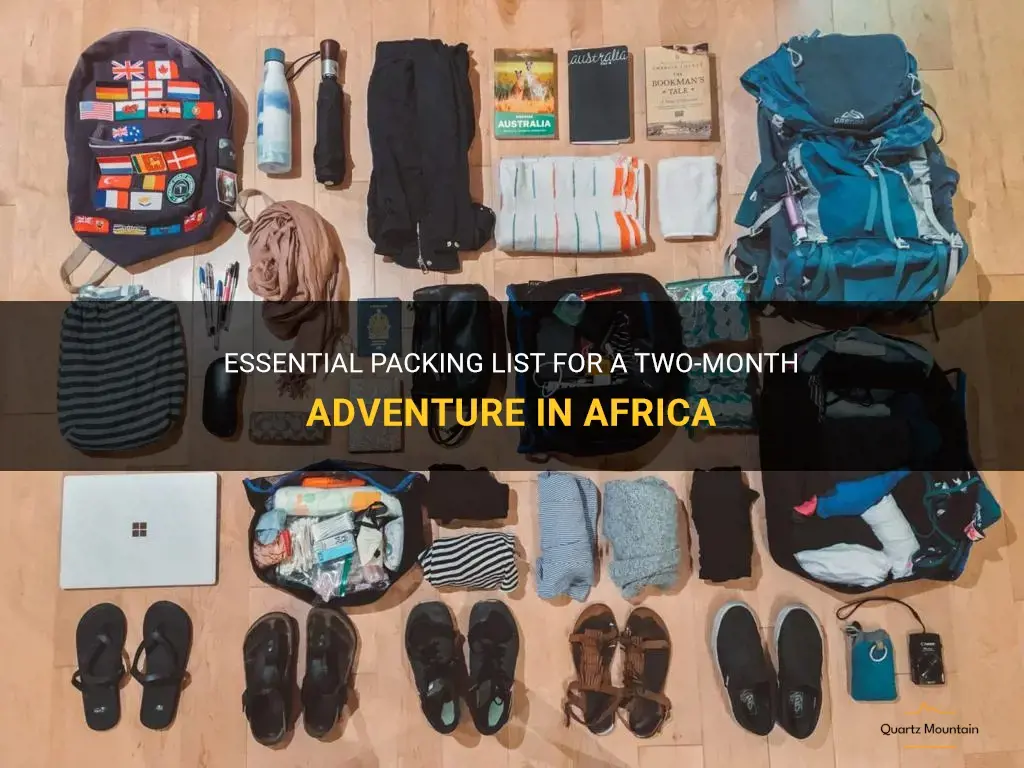
Are you ready to embark on a two-month adventure in Africa? Whether you're planning a safari, exploring ancient ruins, or immersing yourself in the vibrant local culture, being prepared with the right essentials is crucial. From sturdy hiking boots to keep you comfortable on long treks, to insect repellent to ward off pesky mosquitoes, our essential packing list has got you covered for the adventure of a lifetime. So grab your passport and get ready to experience the wonders of Africa like never before!
| Characteristics | Values |
|---|---|
| Duration | 2 months |
| Location | Africa |
| Clothing | Lightweight and breathable clothes, long-sleeved shirts and pants for protection against insects and sun, bathing suit, hat, rain jacket |
| Footwear | Comfortable walking shoes, sandals, socks |
| Accessories | Sunglasses, sunscreen, insect repellent, travel towels |
| Toiletries | Soap, shampoo, toothbrush, toothpaste, deodorant, toilet paper |
| Medications | Prescription medication, pain relievers, anti-diarrheal medication, malaria prophylaxis |
| Electronics | Power adapter, camera, phone |
| Documents | Passport, visa, travel insurance, vaccination records, emergency contacts |
| Money | Cash (in local currency), credit/debit cards |
| Miscellaneous | First aid kit, travel pillow, sleeping bag (if camping), portable charger |
What You'll Learn
- What are the essential clothing items to pack for a 2-month trip in Africa?
- What kind of footwear is recommended for exploring various terrains and climates in Africa?
- Are there any specific medical supplies or vaccinations that should be packed for a 2-month trip in Africa?
- What electronics or gadgets are necessary for staying connected during a 2-month stay in Africa?
- What type of luggage or backpack is suitable for carrying belongings during a 2-month trip in Africa?

What are the essential clothing items to pack for a 2-month trip in Africa?
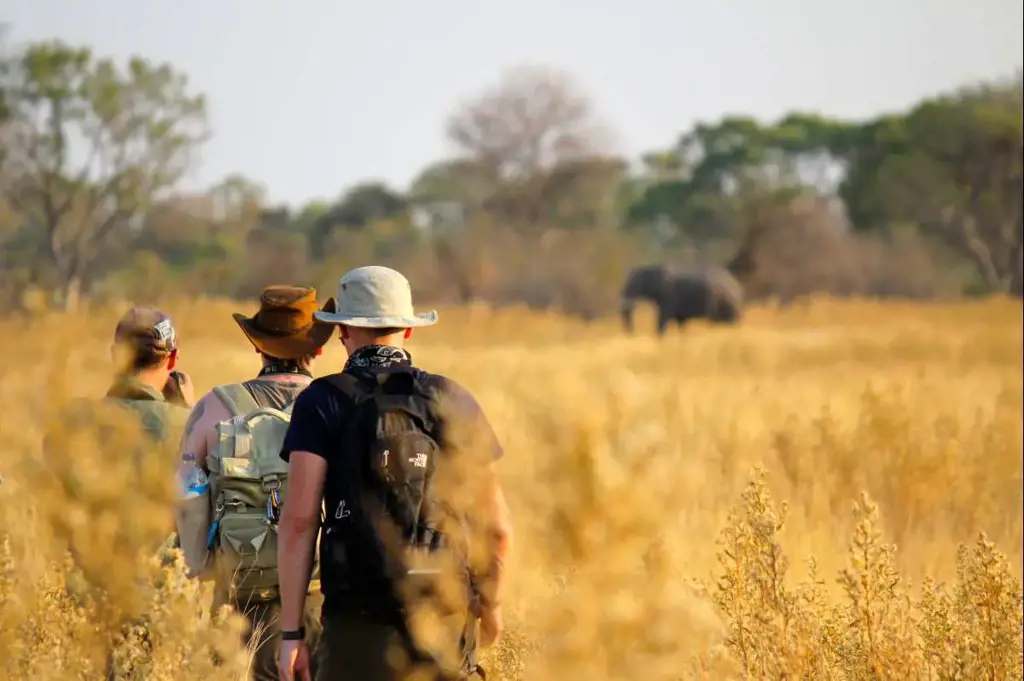
Africa is a diverse continent with varying climates and landscapes, so it's important to pack the right clothing for a 2-month trip. Whether you're exploring the Sahara Desert, embarking on a safari in Kenya, or visiting the beautiful coastlines of South Africa, here are some essential clothing items to consider packing for your African adventure.
- Light and breathable clothing: Africa can be hot and humid, so it's important to pack lightweight, breathable clothing. Opt for materials like cotton or linen that allow air to flow through and keep you cool. T-shirts, tank tops, and loose-fitting pants or shorts are great options.
- Long sleeves and pants: While breathable clothing is essential, it's also important to pack some long-sleeve shirts and pants to protect your skin from the sun and insects. Look for lightweight materials that provide sun protection, such as UPF-rated clothing. These items will also come in handy during cooler evenings or if you're visiting higher altitude areas.
- Swimwear: If you're planning to visit the coastal regions of Africa or enjoy the beautiful beaches, don't forget to pack your swimwear. From the stunning beaches of Zanzibar to the clear waters of Cape Town, Africa offers plenty of opportunities to swim and sunbathe.
- A lightweight jacket or sweater: Even in warmer climates, temperatures can drop during the evenings or if you're visiting higher altitude areas. Packing a lightweight jacket or sweater will ensure you're prepared for cooler temperatures and any unexpected weather changes.
- Comfortable walking shoes: Africa is a continent filled with natural beauty and incredible wildlife, so you'll likely be doing a lot of walking and exploring. Packing comfortable walking shoes or hiking boots is essential. Make sure they are broken in before your trip to avoid blisters.
- Hat and sunglasses: The African sun can be intense, so protect yourself by packing a wide-brimmed hat and sunglasses. These items will not only shield you from the sun's rays but also help keep you cool.
- Rain gear: Depending on the time of year and the regions you'll be visiting, you may encounter some rain during your trip. Pack a lightweight rain jacket or poncho to stay dry in case of unexpected showers or downpours.
- Insect repellent: Africa is home to many insects, including mosquitoes, so packing a good quality insect repellent is crucial. Look for one that is effective against mosquitoes and other insects that may carry diseases such as malaria or dengue fever.
- Cultural considerations: When visiting certain areas of Africa, it's important to respect local customs and dress codes. Research the cultural norms of the specific regions you'll be visiting to ensure you pack clothing that is respectful and appropriate.
- Laundry options: Packing for a 2-month trip means you'll need to plan for doing laundry. Check if your accommodation offers laundry facilities or research local laundry services. Packing some travel-sized laundry detergent or laundry soap strips can also be useful.
Remember to pack a variety of clothing options that can be easily mixed and matched to accommodate different climates and activities. Plan your outfits based on the specific regions, weather forecasts, and activities you'll be participating in. By packing wisely, you'll be prepared for the diverse experiences that Africa has to offer.
Packing Essentials: A Comprehensive Guide for a 17-Day Trip
You may want to see also

What kind of footwear is recommended for exploring various terrains and climates in Africa?
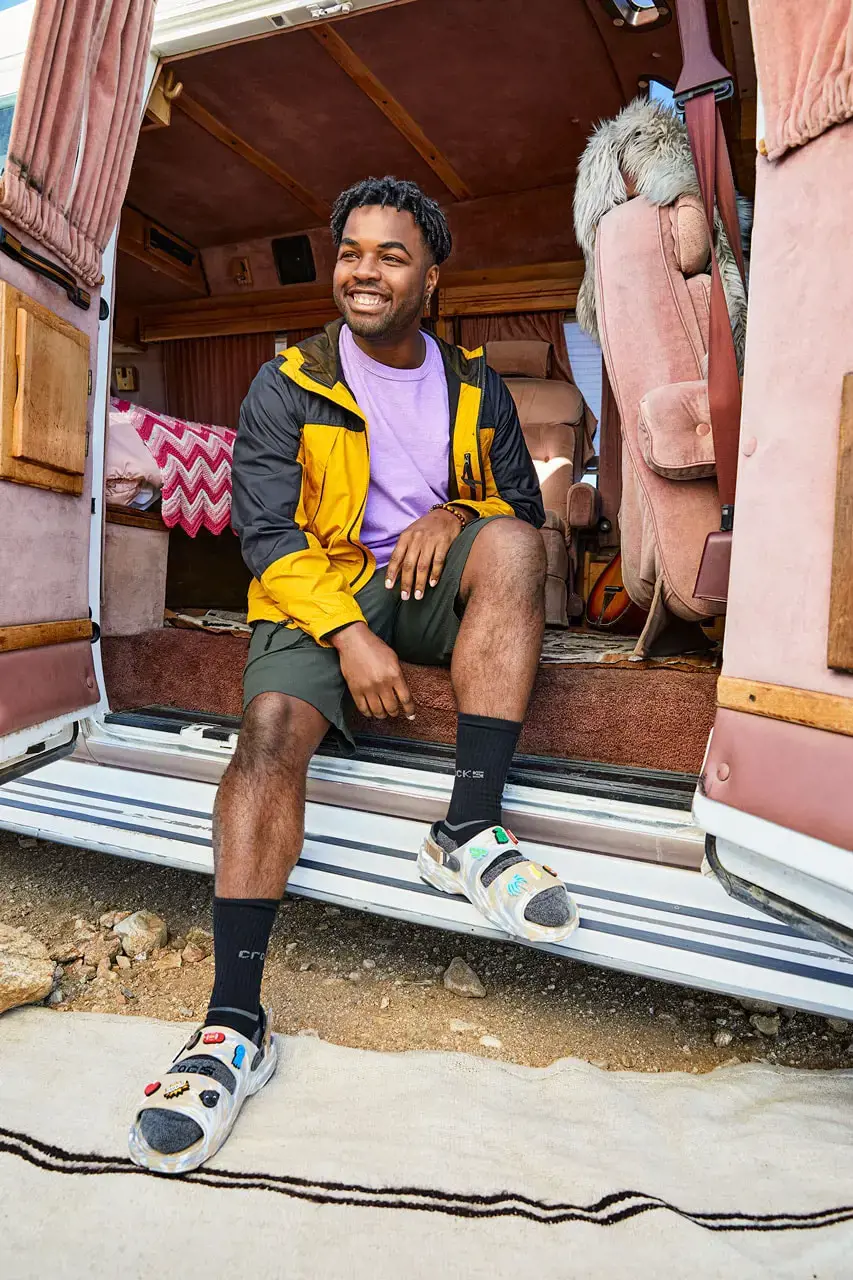
When exploring the diverse and often challenging terrains and climates in Africa, it is essential to have the right footwear to ensure both comfort and safety. The continent is known for its varied landscapes, ranging from savannas and deserts to mountains and rainforests. Therefore, your choice of footwear should be guided by the specific regions and activities you plan to engage in. In this article, we will discuss the different types of footwear recommended for exploring various terrains and climates in Africa.
- Hiking Boots: If you are planning to embark on hikes or treks in Africa's mountainous regions or dense jungles, a good pair of hiking boots is a must. These boots offer ankle support, traction, and durability, which are crucial when navigating rocky, uneven, and slippery terrains. Look for boots with a waterproof or water-resistant feature to handle unexpected wet conditions.
- Trail Running Shoes: For those who prefer speed and agility while exploring Africa's trails, trail running shoes are an excellent choice. They are lightweight, provide stability, and offer good traction on both dry and wet surfaces. These shoes are suitable for running on various terrains, including dirt paths and rocky trails, making them ideal for exploring national parks and wildlife reserves.
- Sandals: In Africa's hot and arid regions, such as the Sahara Desert or Kalahari Desert, open-toed sandals can be a more comfortable option. These sandals should have sturdy soles to protect your feet from sharp rocks, thorns, and hot sand. Additionally, choose sandals with adjustable straps to ensure a snug fit and prevent blisters during long walks on sandy terrains.
- Water Shoes: If your African adventure includes water activities like snorkeling, river rafting, or exploring marine life along the coast, investing in a pair of water shoes is essential. These shoes offer protection against sharp rocks and hidden hazards underwater. They are quick-drying and have excellent grip on wet surfaces, allowing you to navigate slippery river beds or rocky shorelines with ease.
- Wellies or Rubber Boots: For areas with heavy rainfall and muddy trails, such as the wetlands of Okavango Delta or the rainforests of Congo, a pair of wellies or rubber boots is a practical choice. These boots are waterproof and offer excellent traction in muddy and slippery conditions. Consider purchasing boots with a comfortable lining for added warmth during cooler seasons.
- Lightweight Sneakers: In urban areas or cities with well-maintained infrastructure, lightweight sneakers can be adequate for everyday exploration. These shoes should provide cushioning and support for walking long distances, especially when visiting museums, markets, or historical sites. Choose sneakers with breathable mesh uppers to keep your feet cool in hot climates.
Remember, it is always a good idea to break in your shoes before your trip to avoid discomfort or blisters. Additionally, consider investing in moisture-wicking socks to keep your feet dry and prevent odor. Proper foot care, such as regular washing and keeping your toenails trimmed, is also crucial to avoid any foot-related issues during your African adventure.
In conclusion, the recommended footwear for exploring terrains and climates in Africa depends on the specific activities and regions you plan to visit. Whether you choose hiking boots, trail running shoes, sandals, water shoes, wellies, or lightweight sneakers, prioritize comfort, stability, and protection. By selecting the right footwear, you can maximize your exploration experience and ensure your feet are well-prepared for the diverse environments Africa has to offer.
What Are Some Essential Items to Pack When Running Away? Insights from Reddit Users
You may want to see also

Are there any specific medical supplies or vaccinations that should be packed for a 2-month trip in Africa?

Planning a trip to Africa involves more than just booking flights and packing clothes. When traveling to Africa, it is essential to take precautions to protect your health, as the continent can present unique challenges in terms of diseases and medical facilities. Here are some medical supplies and vaccinations you should consider packing for a 2-month trip in Africa.
- Consult a travel medicine specialist: Before your trip, it is advisable to consult a travel medicine specialist or visit a travel clinic. They can provide you with personalized advice based on your destination, itinerary, and personal health history.
- Routine vaccinations: Ensure that your routine vaccinations, such as measles, mumps, rubella (MMR), diphtheria, tetanus, and pertussis (DTaP), polio, and flu shots, are up to date. These are essential regardless of your destination.
- Travel-specific vaccinations: Depending on the countries you plan to visit in Africa, there may be specific vaccinations recommended or required. For example, yellow fever vaccination is mandatory for entry into many African countries. Other vaccinations to consider include typhoid, hepatitis A and B, meningitis, and rabies. The travel medicine specialist will advise you on which vaccines are necessary based on your specific travel plans.
- Malaria prevention: Malaria is a significant concern in many parts of Africa. It is essential to take precautions to prevent mosquito bites and consider taking antimalarial medication. The type of medication and duration of use will depend on the specific regions you will be visiting, as the effectiveness of different medications can vary.
- Diarrhea and gastrointestinal medication: Travelers to Africa might be at risk of developing traveler's diarrhea due to differences in food and water. Packing over-the-counter diarrhea medication and oral rehydration salts can be helpful in case you experience stomach issues.
- First aid supplies: It is advisable to pack a small first aid kit containing items such as band-aids, antiseptic ointment, tweezers, and painkillers. This will come in handy for minor injuries or illnesses during your trip.
- Insect repellents: Be sure to pack insect repellents containing DEET or other effective ingredients. These can help prevent mosquito bites and protect against diseases such as malaria and dengue fever.
- Personal medication: If you have any pre-existing medical conditions, ensure that you have an adequate supply of medications for the duration of your trip. It is also a good idea to carry a prescription or letter from your healthcare provider, explaining the need for your medications.
- Travel insurance: While not a medical supply or vaccination, it is crucial to obtain comprehensive travel insurance before embarking on your trip. This will provide financial protection in case of medical emergencies, trip cancellations, or lost belongings.
Remember, the above recommendations are general guidelines and may vary based on individual circumstances. It is essential to consult with a healthcare professional or travel medicine specialist to receive personalized advice for your specific trip.
In conclusion, when traveling to Africa for a 2-month trip, it is crucial to prioritize your health and wellbeing. Consult a travel medicine specialist, ensure your routine vaccinations are up to date, and consider any travel-specific vaccinations required for the region. Take precautions to prevent mosquito bites and protect against malaria, and pack essential medical supplies such as diarrhea medication, first aid supplies, and insect repellents. Finally, don't forget to obtain comprehensive travel insurance to cover any unforeseen medical emergencies. With proper preparation, you can have a safe and enjoyable trip to Africa.
Essential Items for a Memorable Snow Tubing Adventure
You may want to see also

What electronics or gadgets are necessary for staying connected during a 2-month stay in Africa?
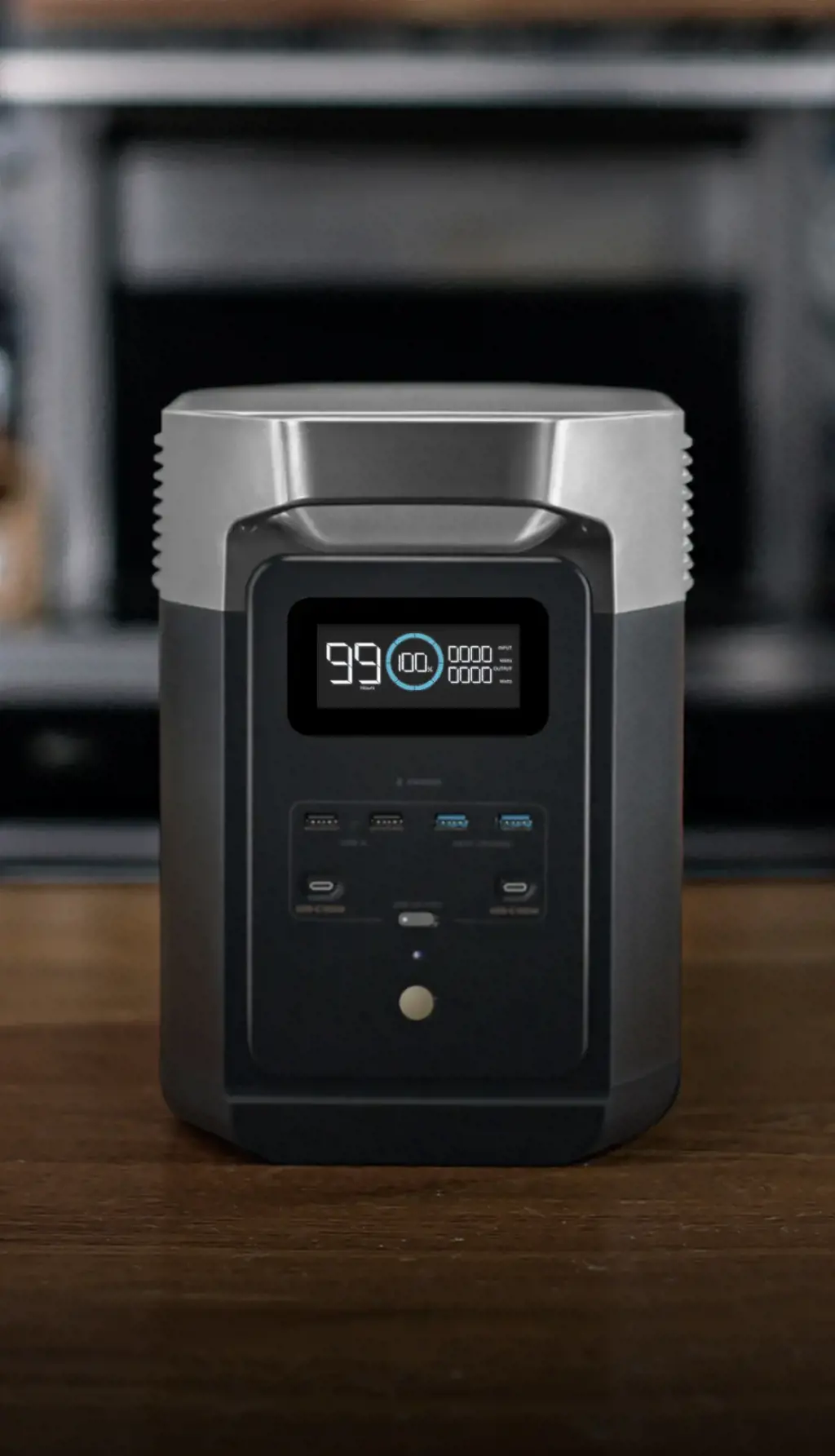
When embarking on a 2-month stay in Africa, it is important to have the necessary electronics and gadgets to ensure you can stay connected with the world outside. Africa is a vast continent with varying levels of technological infrastructure, so it is important to come prepared with the right devices. In this article, we will discuss the essential electronics and gadgets you should consider bringing with you.
- Smartphone: A smartphone is a must-have device for staying connected while in Africa. It allows you to make calls, send text messages, and access the internet. Make sure your smartphone is unlocked so you can use local SIM cards for affordable data plans.
- Portable Wi-Fi hotspot: In some areas of Africa, you may not have access to reliable internet connections. In such cases, a portable Wi-Fi hotspot can be a lifesaver. These devices create a Wi-Fi network that you can connect to with your devices, providing internet access wherever you go.
- Power bank: Power outages are common in many parts of Africa, making a power bank a necessity. It allows you to charge your devices on the go, ensuring you don't run out of battery when you need it most.
- Universal travel adapter: Africa has a variety of power outlet types, so it's important to bring a universal travel adapter that can fit different socket types. This will ensure you can charge your devices no matter where you are.
- E-reader or tablet: If you enjoy reading, an e-reader or tablet can be a great way to carry multiple books with you without adding much weight to your luggage. Additionally, tablets can be used for entertainment and web browsing during your downtime.
- Portable Bluetooth speaker: If you enjoy listening to music or watching movies, a portable Bluetooth speaker can enhance your audio experience. These speakers are compact, lightweight, and can connect to your smartphone or tablet wirelessly.
- GPS device: If you plan on exploring the wilderness or remote areas, a GPS device can be crucial for navigation. It can help you find your way and track your location even when you have limited or no cellular reception.
- Digital camera: Africa is known for its stunning landscapes and wildlife. Don't forget to bring a good quality digital camera to capture your adventures and share them with friends and family back home.
- Smartwatch: A smartwatch can be a useful gadget for staying connected while on the go. It can display notifications, track your health and fitness, and even make contactless payments in some cases.
- External hard drive: If you plan on taking a lot of photos or videos, an external hard drive can be handy for backing up your files. It ensures that even if your devices get lost or damaged, your memories are safe.
Remember to pack these electronics and gadgets securely and consider purchasing travel insurance to protect your investments. Stay connected, capture memories, and have a fantastic time during your 2-month stay in Africa!
Essential Items to Pack for a Memorable Rave Experience
You may want to see also

What type of luggage or backpack is suitable for carrying belongings during a 2-month trip in Africa?
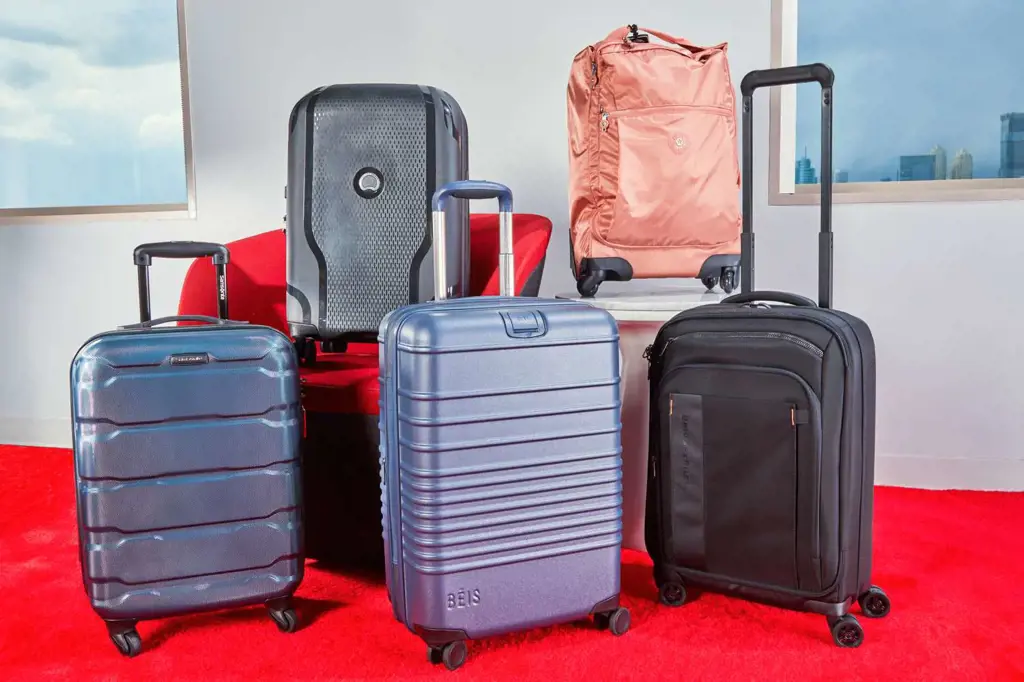
When planning a 2-month trip to Africa, it is important to carefully consider the type of luggage or backpack that will be suitable for carrying belongings. Africa is a diverse continent with varied terrain and climates, so it is essential to choose a bag that is durable, versatile, and able to withstand different conditions. Here are some tips to help you select the right luggage for your African adventure.
- Consider the size: A 2-month trip requires a larger bag or backpack to accommodate clothing, toiletries, and other essentials. Look for a bag with a capacity of at least 60 liters to ensure you have enough space for all your belongings. It is also important to check the dimension restrictions of airlines, as some may have limitations on the size of carry-on bags or checked luggage.
- Opt for durability: Africa's rugged terrain and unpredictable weather conditions demand a durable bag that can withstand various challenges. Look for bags made from high-quality materials such as nylon or canvas, which are known for their strength and water resistance. Reinforced stitching and sturdy zippers are also important features to consider.
- Choose versatility: Since you'll be traveling to different regions in Africa, it is important to choose a bag or backpack that is versatile and can adapt to different situations. Look for bags with detachable daypacks or convertible designs that allow you to separate your belongings when needed. This way, you can explore cities or go on day trips with a smaller bag, while leaving the main luggage at your accommodation.
- Consider security features: Africa, like any other travel destination, has its share of petty theft and pickpocketing incidents. Look for bags with built-in security features such as lockable zippers or hidden pockets, as they provide an extra layer of protection for your valuables. Additionally, consider using luggage locks or cable ties to secure your bag during transit.
- Prioritize comfort: Carrying a heavy bag around for two months can take a toll on your body. Look for bags with padded straps and back panels to distribute the weight evenly and provide extra comfort. Adjustable straps and waist belts are also beneficial, as they allow you to customize the fit according to your body's needs.
- Test the bag before your trip: It is always a good idea to test your luggage before embarking on a long trip. Pack it with similar items that you intend to bring on your African adventure and take it for a short test walk or hike. This will allow you to assess the comfort, weight distribution, and functionality of the bag, and make any necessary adjustments before your trip.
Here are some examples of suitable luggage options for a 2-month trip in Africa:
- Travel backpacks: Brands like Osprey, Deuter, and Kelty offer backpacks specifically designed for traveling. Their bags often come with multiple compartments, detachable daypacks, and adjustable suspension systems for maximum comfort. Examples include the Osprey Farpoint 70, Deuter Quantum 70+10, and Kelty Redwing 50.
- Rolling duffel bags: If you prefer a bag with wheels, rolling duffel bags are a great option. Brands like Eagle Creek and North Face offer durable and versatile rolling duffels with large main compartments and multiple handles for easy carrying. Examples include the Eagle Creek ORV Trunk 40 and North Face Rolling Thunder 30.
- Hybrid backpacks: Hybrid backpacks combine the best features of traditional backpacks and rolling suitcases. They usually have wheels and a retractable handle for when you need to roll the bag, but also come with backpack straps for when you encounter rough terrain. Brands like Osprey and Thule offer hybrid backpacks suitable for extended trips. Examples include the Osprey Sojourn 60 and Thule Crossover 55L.
In conclusion, when planning a 2-month trip in Africa, it is crucial to choose a luggage or backpack that is durable, versatile, and comfortable. Consider the size, durability, versatility, security features, and comfort of different bags before making your final decision. Testing the bag before your trip is also recommended to ensure it meets your needs and expectations. With the right luggage, you can focus on enjoying your African adventure without worrying about your belongings.
Essential Items to Pack for Your Next Climbing Trip
You may want to see also
Frequently asked questions
For a 2-month trip to Africa, it is important to pack clothing that is lightweight, breathable, and suitable for warmer temperatures. Opt for loose-fitting clothes made from natural fibers like cotton and linen, as they will help keep you cool in the heat. It is also advisable to pack long-sleeved shirts and pants, as they can provide protection from mosquitoes and other insects in certain areas. Additionally, don't forget to pack a hat, sunglasses, and comfortable walking shoes.
When it comes to toiletries, it is important to pack items that will help you stay clean and comfortable during your trip. Some essential items to include in your toiletry bag for a 2-month trip to Africa are: sunscreen with a high SPF, insect repellent, hand sanitizer, toilet paper (as it may not be readily available in some areas), basic medical supplies (such as pain relievers and band-aids), and any prescription medications you may need. It is also a good idea to pack a travel-sized washcloth and a quick-drying towel, as they can come in handy.
When it comes to accessories, it is important to pack items that will enhance your overall travel experience. Some essential accessories to bring for a 2-month trip to Africa include a good quality camera to capture the breathtaking landscapes and wildlife, a portable charger or extra batteries for your electronics, a reusable water bottle to stay hydrated, a travel adapter to charge your devices, and a sturdy backpack or daypack for carrying essentials during day trips and excursions. You may also want to consider bringing a travel neck pillow and earplugs for added comfort during long journeys or flights.
In addition to clothing, toiletries, and accessories, there are a few specific items that are worth packing for a 2-month trip to Africa. One important item to bring is a good quality mosquito net, as it can provide an extra layer of protection against mosquito-borne diseases, especially if you are staying in more rural or remote areas. It is also advisable to pack a reusable water filter or purification tablets, as it may not be safe to drink tap water in some areas. Additionally, consider packing a small first aid kit with basic medical supplies, including antiseptic ointment, adhesive bandages, and any necessary prescription medications.







